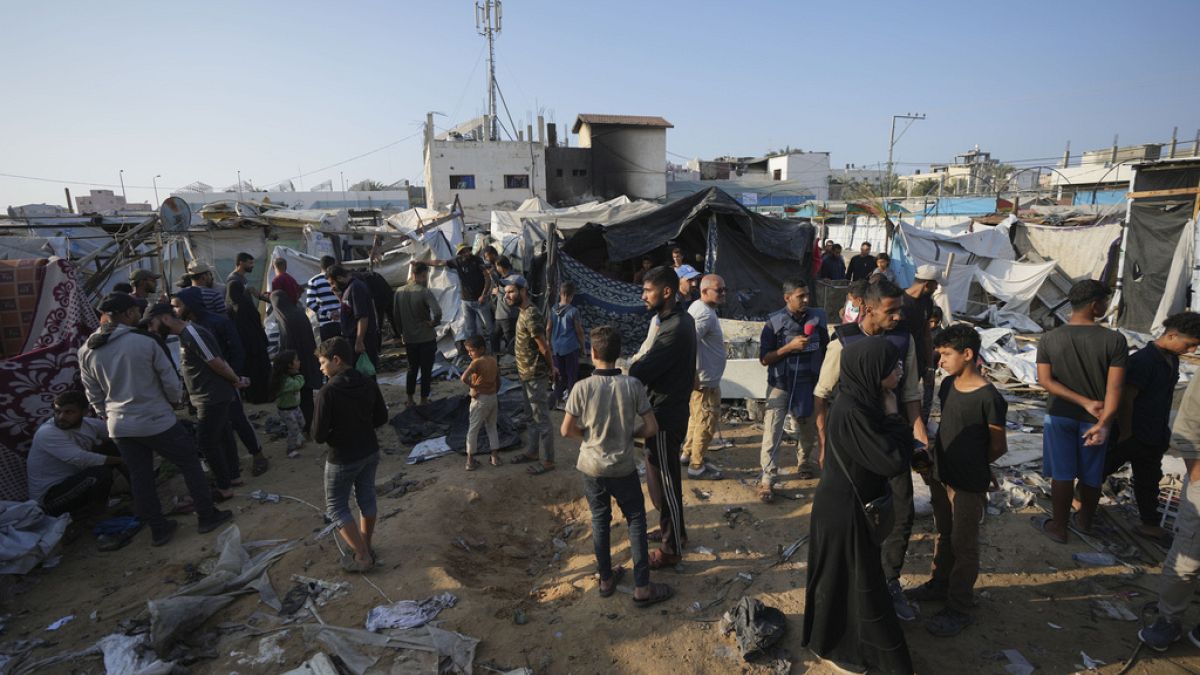The Biden administration has decided not to limit arms transfers to Israel despite ongoing concerns about the conditions in Gaza. Relief groups claim that conditions in Gaza are worse now than at any point during the 13-month-old war. State Department spokesman Vedant Patel stated that while Israel has made some progress in increasing humanitarian aid to Gaza, more needs to be done to improve the overall humanitarian situation. International aid organizations have criticized Israel for failing to meet U.S. demands for greater humanitarian access to Gaza. Hunger experts have warned that famine may already be present in the northern part of Gaza, which has been virtually cut off from food for over a month.
The U.S. decision not to limit arms transfers to Israel comes despite the Biden administration setting a deadline last month for Israel to increase food and emergency aid to Gaza. The obstacles to aid distribution include Israeli military restrictions on the ground, as well as threats of lawlessness and theft. Efforts to deliver aid have been hampered by turmoil and restrictions imposed by Israeli troops. Despite Israel announcing a series of steps to improve the situation, including opening a new crossing for aid in central Gaza and expanding the coastal humanitarian zone, aid organizations argue that conditions in Gaza have worsened.
Trump, during his previous term, was a strong supporter of Israel and had promised to end the wars in the Middle East without specifying how he would achieve this. Netanyahu has reported speaking with Trump multiple times since the recent presidential election. The Biden administration’s decision not to limit arms transfers to Israel indicates its continued support for the country, despite concerns about the humanitarian situation in Gaza. The U.S. is Israel’s key ally and largest provider of arms and military aid, highlighting the significance of this decision in the ongoing conflict.
The ongoing conflict in Gaza has raised international concerns about the humanitarian situation in the region. The failure of Israel to meet U.S. demands for increased humanitarian access to Gaza has drawn criticism from aid organizations. The threat of famine in the north of Gaza highlights the urgent need for improved conditions and increased aid deliveries. The Biden administration’s decision to not limit arms transfers to Israel emphasizes its support for the country, despite calls for more significant action to address the worsening conditions in Gaza.
In conclusion, the situation in Gaza remains dire, with ongoing concerns about the lack of humanitarian access and the threat of famine. The decision by the Biden administration not to limit arms transfers to Israel reflects its support for the country, despite criticism from aid organizations. Efforts to improve conditions in Gaza, including the recent steps announced by Israel, have not yet had a significant impact on the ground. As the conflict continues, the international community must continue to monitor the situation in Gaza and work towards a lasting solution that ensures the well-being of the civilian population.










